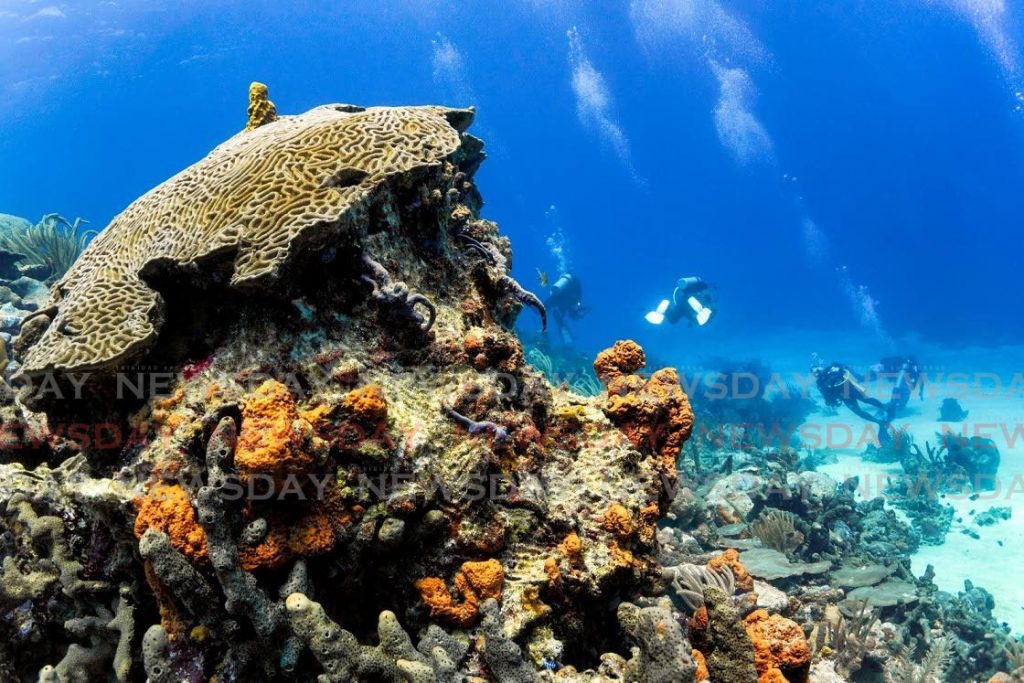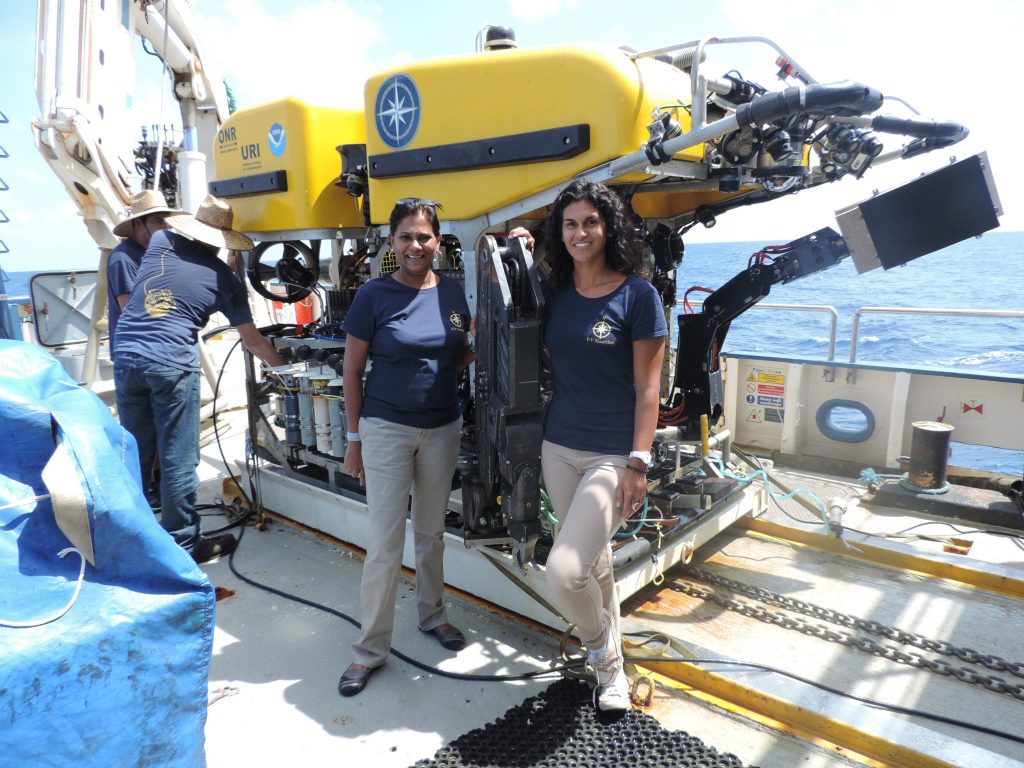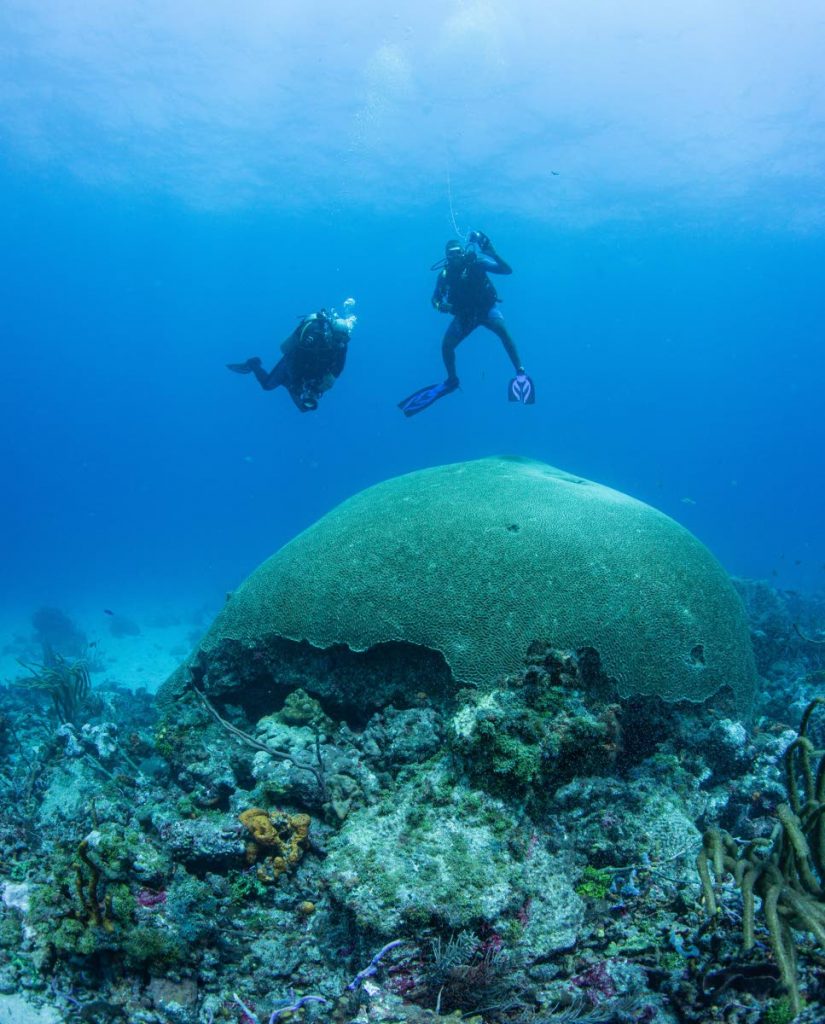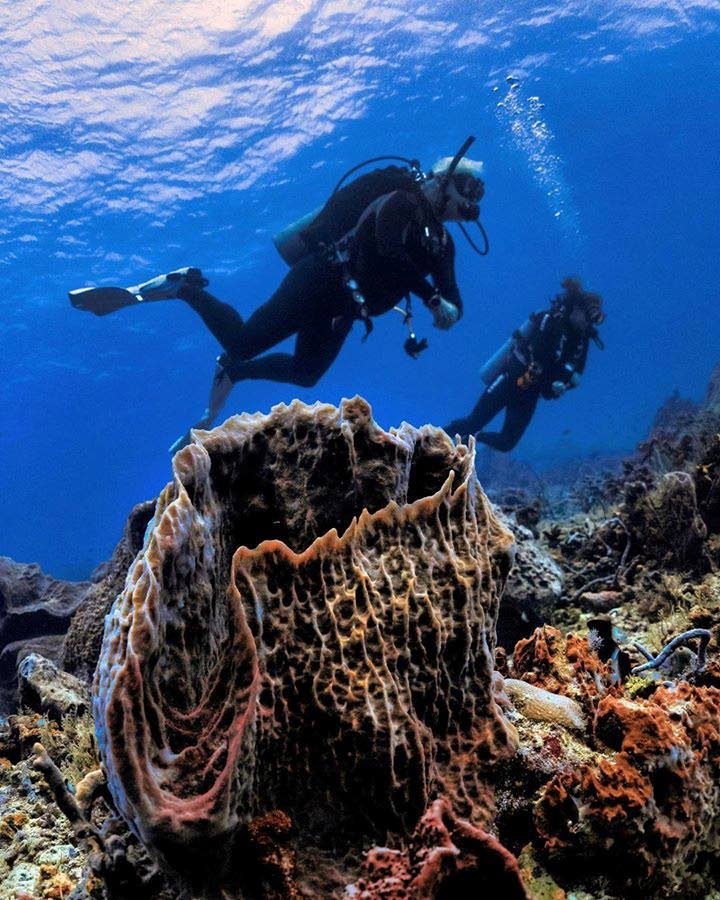Life on Trinidad and Tobago's ocean floors threatened by deep water drilling

As TT continues to go deeper into the ocean in search of resources, the nation must consider what effect that could have on the hundreds, and possibly thousands of different life forms that live in the oceans and on the ocean floor.
Prof Judith Gobin, the first female professor in the Department of Life Sciences at UWI, is the country’s foremost expert in life under the sea. In a recent conversation with Business Day, she called for more communication between the energy sector and the minds devoted to discovering and protecting the biodiversity of TT’s oceans.
There is life down there
Gobin is a benthic marine biologist – she studies organisms that live in the sand and sediment at the bottom of the ocean – and has spent more than 20 years looking through a microscope to better understand these creatures.
The deep sea is considered anything from 200-about 6,000 metres below sea level. Despite encompassing more than 70 per cent of the planet, less than five per cent of the ocean has been explored. In TT, the ocean floor, according to the Ministry of Energy in a 2013 TT deepwater competitive bid-round presentation, spans an area of 40,000 square kilometres and reaches depths ranging from 600-3,500 meters.
The geography of the sea floor has the same complexity as a rainforest on land. The deep sea holds trenches, plains, volcanoes, geysers and is home to the longest mountain chain on the planet.

Life at the bottom of the ocean is just as diverse, with a new species being discovered every ten days since 1977 in hydrothermal (warm water) areas alone.
The deep is home to the only organisms capable of existing totally independent of sunlight. Instead they garner energy from hydrogen suphide, the same gas associated with rotting eggs.
It’s also rich in resources – TT’s new hope for a hydrocarbon revival is founded on the potential of deepwater reserves off the northeast coast. Aside from natural gas and other hydrocarbons buried under the sea floor, there are possible reserves of several mineral and metal deposits which could be mined to make solar panels, cell phones and several other high-tech items.
Recently, cancer treatments and cosmetics have come from chemicals or enzymes extracted from deep-sea organisms and used for medicine. Microorganisms in the ocean are also currently being researched to further advance the development of vaccines against covid19.
In 2013 Gobin, along with scientists from around the world, scratched the surface of what lived in the depths of Trinidad and Tobago’s seas when an exploration vessel called the EV Nautilus did deepwater exploration and mapping exercises near Kick ‘Em Jenny, a deep-water volcano off the north of Grenada, and parts of the Atlantic Ocean off the northeast coast of TT, between the two islands.
The Nautilus is owned by Prof Robert Ballard, a marine biologist and marine archaeologist whose claim to fame was the discovery of the wreckage of the Titanic. In 2013, the Nautilus hosted local and international scientists who not only explored the ocean floor using the ship’s deep-sea exploration technology, but shared their findings in real time with biology students locally and internationally, through live online sessions.
The videos gathered by the deep-sea explorers were compiled into nine videos and can be viewed on NIHERST’s You Tube page.
Gobin herself worked a few shifts on the ship.
“The students would type in questions and we would have to respond. It was really interactive and you had to be on the ball,” she said.
But while down there, scientists discovered more than 180 new organisms in the channel between Trinidad and Tobago.
“It is what I called the first reveal of TT. There were wonderful videos of what the bottom of the sea looks like at 4,000 metres. For TT, this is what is in our backyard. So it was really very exciting.”
Drilling could destroy TT VMEs
Gobin joins several scientists in TT and around the world who worry that before they can discover new organisms in the depths of TT’s waters and determine the value they have for the ecosystem and for human beings, they could be destroyed by deepwater mining.
Deepwater mining, she said, is public enemy number one when it comes to benthic organisms and the deep-water ecosystems around the world.

“Of course, as a national and an academic I recognise the importance of oil and gas,” Gobin said. “It is the driving economy for TT. However, because of the deep-sea exploration done on the Nautilus, we have discovered some of what we would call vulnerable marine ecosystems or VMEs.”
VMEs – systems that have been contributing to TT’s biodiversity for thousands of years, like corals for example – are at immediate risk because of offshore and deepwater drilling.
“It is like running an excavator on the ocean floor, where you have all these wonderful gardens – some a million years old. These are living ecosystems that we are destroying for another product or resource. It is a difficult one for us.”
The effect of deepwater mining in the most extreme cases – when there is an oil spill –was seen in 2010, when an explosion at BP’s Deepwater Horizon in the Gulf of Mexico killed 11 people and spilled 210 million gallons of crude oil and 225,000 tons of methane into the ocean over 87 days.
The spill harmed about 82,000 birds of 102 species, 6,165 sea turtles, up to 25,900 marine animals and a vast number of fish, from the blue fin tuna to the smallest of seahorses, as well as oysters, crabs, corals and every other organism in the area.
In 2018, New Zealand began t to strike a balance between progress and protection of its deep-water environments, by ending offshore oil explorations and declining to award new exploration and drilling licences, despite pushback from the energy sector.
Current licences for explorations and drilling are still being maintained, and are protected by government plans. The last of the licences will end in 2030.

TT, however, is going deeper and deeper into the ocean. BHP’s deepwater discoveries have the potential to provide 3.5 trillion standard cubic feet of natural gas over decades.
In his address at the launch of the results of a 2019 audit of TT’s gas reserves by oil and gas consultancy agency Ryder Scott, Minister of Energy Franklin Khan said deep-sea projects would start from the first quarter of 2022.
But scientists are still unable to determine whether drilling by oil and gas companies has done any damage to the biodiversity of TT’s oceans, simply because they have not been able to explore and examine it.
“We have never been able to say that the ocean is being damaged, because we have not done much mapping in this deep-sea ecosystem. What we did in 2013 was just the tip of the iceberg. Because the deposits and resources on land are running out, people are going further and further into the sea,” Gobin said.
Gobin is part of a conversation with the UN, working on a legally binding treaty about the areas beyond national jurisdiction which would protect these areas, but in the meantime, the exploration and drilling, and the destruction of the ecosystems at the bottom of TT’s waters continues.
“I would have liked to get involved with the discussion locally, but we, as academics and scientists, are often left out of the conversation. We (the country) could be destroying ecosystems that are of great value nationally as well as globally.”
Can scientists tag along?
While TT has the human resources to do experiments, the country lacks the equipment, like that on the EV Nautilus, to go out and explore the ocean floor for an extended period.
But private oil companies, like Shell, BP, BHP all operate in TT’s waters and move back and forth in the same areas. In fact, extensive surveying of the ocean floor is also part of oil and gas exploration.
“I am interested in what they find when they do seismic surveys. Can they share those with us? Would they consider bringing us on board to do part of the survey? If we find something exciting can, we can we send a team of young researchers on board to do exactly what we did on the Nautilus? If we find something vital can we have a conversation about whether we can shift the drilling slightly?

"That is where I would like to be part of the discussion.”
Gobin said while she had no doubt that Government would support conversations between researchers and the private sector, she has been trying to talk to oil and gas operators in the country for assistance.
As TT explores its options in renewable energy, the fragile ecosystems below the ocean’s surface will be even further protected. The science community, she said, was very pleased with TT’s moves away from hydrocarbons and toward renewable energy.
“Transitioning from hydrocarbons to cleaner energy is very doable,” she said. “It’s being done in parts of the world already. Jamaica has already started using hydrodynamics. Barbados has been using solar energy for years.
"We don’t have to reinvent the wheel, we just need to invest in renewable systems. We have to weigh what is good for the environment and what is the cost.”

Comments
"Life on Trinidad and Tobago’s ocean floors threatened by deep water drilling"